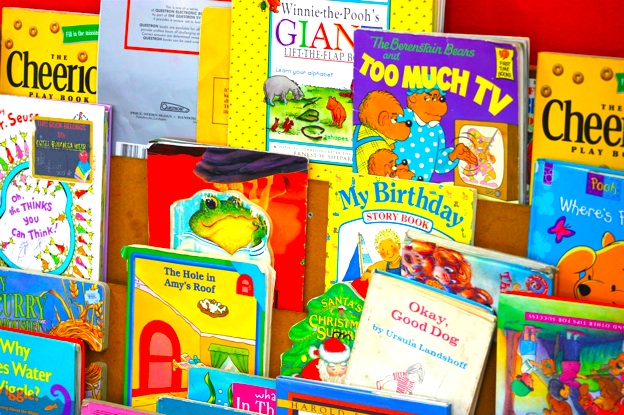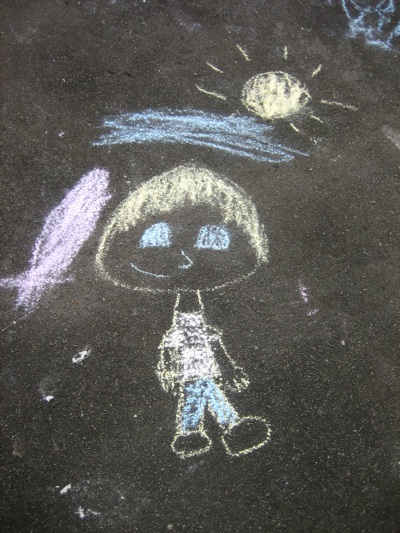SingaporeMotherhood | Preschooler & Up
December 2011
Prepare Your Child for Pre-school

The start of pre-school is an exciting, but sometimes scary, moment for you and your child. Whether your little one attends school for a few hours a week or several hours a day, there’s much to do and think about.
What kind of programme is best? How can you tell when your child is ready? What will he learn? What’s the best way to prepare? Learn how you can make this transition as easy as A-B-C.
It is a very personal decision to send your child to pre-school. It is important that parents don’t feel pressured about making the decision. If your child hasn’t had an opportunity for on-going socialisation and has been cared by an adult outside your family, you may want to consider enrolling him in pre-school the year before kindergarten.
[banner][/banner]
Ultimately, you and your child will figure out the best time. And remember, there are a lot of good choices, not just one. Here are some factors that might help you make a favourable choice:
• What is the school’s philosophy? Is it academically focused, or play focused? Whatever it is, make sure you like what you hear.
• Is it clean? Are the rooms spacious? Do the children and teachers wash their hands frequently?
• Look at children’s work on the walls. Does it really look like what a 2-, 3- or 4-year-old child can accomplish? Or does it look like the teacher is doing all the work to impress parents?
• Does the class offer a variety of activities – without being too regimented?
• Look at the playground. Is it fenced-in, age-appropriate, in good shape, providing a variety of activities? Does the pre-school encourage daily outdoor time?
• Examine the teachers’ relationships with the children. Are the teachers listening and truly trying to engage the child in a conversation?
• Ask about teachers’ education. Also, look at the child-teacher ratio and ask about staff turnover.
In addition, the National Association for the Education of Young Children (NAEYC) has come up with some great signs for parents to look out for while choosing a pre-school. Parents should look out for teachers/schools that:
– work with individual children, small group and a whole group at different times of the day;
– provide opportunities where children learn numbers and alphabets in context of their everyday experiences and through appropriate practices such as hands-on experiences;
– provide sufficient time to play and explore in various activities; provide opportunities to play outside of the classroom in a safe play area every day.
Emotional Separation
As you are approaching this major milestone with your child, it’s quite understandable to experience conflicting emotions. You’re probably excited about the fun he’ll have and the friends he’ll make. But you may feel a little sad that your baby is venturing into the world without you. These emotions are normal. Your child will also have a range of reactions – feeling proud to be a big kid but worried about saying good-bye to you.
There’s a lot you can do to get ready for the big day. Keep your efforts low key; if you make too big a deal of this milestone, your child may feel more worried than excited. Here are some ideas to keep the focus on fun.
Read about pre-schools
Start by reading stories about pre-schools. Choose books that include typical pre-school activities, as well as those that deal with separation. Point to the pictures and ask your child how the different characters might be feeling. Don’t be surprised if he wants to read these books over and over. This is how children process new ideas and work through feelings.
Use pretend play
Help your child picture what pre-school will be like. Take turns playing the roles of Mommy, kid, and teacher. Act out saying good-bye to Mom and hello to the teacher. When you get tired of that scenario, add other scenarios, like snack time and finger painting and have fun acting with your child.
Blend routines
Have a clear understanding of school routine and try to weave it together with the family routine.
Play at self-help skills
Make a game out of practicing self-help skills like putting on his backpack or fastening his shoes. For example, you might want to have a “race” with your child to see how quickly he can put on his shoes. When you play school together, you can give your child the chance to practise zipping his backpack closed, and sitting “criss-cross applesauce.” If your child will be bringing lunch, pack it up one day before school starts and have a picnic together. This will give him the chance to practise unzipping his lunch pack and unwrapping his sandwich — important skills for the first day!
Play at the new pre-school
Visit your child’s pre-school together. Ask when you can tour the school with your child. Play on the school playground a few times before your child starts the programme. These visits increase your child’s comfort with and confidence in this new setting.
Schedule a visit to the school
Seeing the classroom, meeting the teachers, and playing with the toys can make this transition easier. Familiarity helps children feel safe.
Answer questions
Answer your child’s questions, even if they’re difficult. It’s important to respond honestly, in a language he can understand. (“Yes, I will leave you for a little while, but I will come back to get you at lunchtime.”)
Teach them to look for other adult help
Try to encourage children to seek help instead of helping the child directly.
The First Few Days
• Wake up early enough so that you and your child don’t have to rush to get to pre-school.
• Make breakfast for your child and, if possible, sit down to eat together — or at least talk with him as he eats and you get ready.
• Review the day’s routine (what pre-school will be like, how your child will get to school/come home).
• Pack your child’s backpack together. If your child is bringing lunch, select foods that you know are his favourites. Having some familiarity on his first day is helpful as he adjusts to so many changes.
• Let your child choose a special stuffed animal or blanket to bring to school with him. These “loveys” can help children make the transition from home to school, and can also make naptime easier, too. You may want to send your child with a family photo or favorite book as well. These familiar objects can help if he feels lonely during the day.
The jitters of separating with your child on your child’s first day at pre-school can be quite emotional, here are some ways to help you cope with the separation:
Plan to stay a little while
Staying for 15 or 30 minutes on that first morning can help ease the transition. Together, the two of you can explore the classroom, meet some other children and play with a few toys. When you see that your child is comfortable, it is time to leave. If he is having a harder time getting engaged, you may want to ask your child’s teacher to stay with your child as you say good-bye so that when you leave, he can turn to another caring adult for support.
Keep your tone positive and upbeat
Children pick up on the reactions of the trusted adults in their lives. So try not to look worried or sad, and don’t linger too long. Say a quick, upbeat good-bye and reassure your child that all will be well.
Create a special good-bye routine
For example, you can give your child a kiss on his palm to “hold” all day long. Or, the two of you can sing a special song together before you leave. Good-bye routines are comforting to children and help them understand and prepare for what will happen next.
Resist the rescue
Try not to run back in the classroom if you hear your child crying, as upsetting as this can be. This is a big change and your child may, quite understandably, feel sad and a little scared. But if you run back in, it sends the message that he is only okay if you are there and it is likely to prolong your child’s distress and make it harder for him to adapt. Rest assure that teachers have many years of experience with helping families make the shift to pre-school. Instead, you can wait outside the classroom for a few minutes to ensure that all is well, or call the school later in the morning to check-in.
Lastly, consider carefully the demands that will be placed on your child. It may be worth considering giving your child the gift of time if he is not ready for these demands.
You are the best person to make this decision since you know your child’s skills. Other helpful people like friends whose children were in the same schools, or family members with school-going children can be a source of help and assistance in helping you make the decision.
This article was contributed by Preman Komala, Principal Education Development Specialist at NTUC First Campus Co-operative Ltd
All content from this article, including images, cannot be reproduced without credits or written permission from SingaporeMotherhood.
Follow us on Facebook, Instagram, and Telegram for the latest article and promotion updates.









